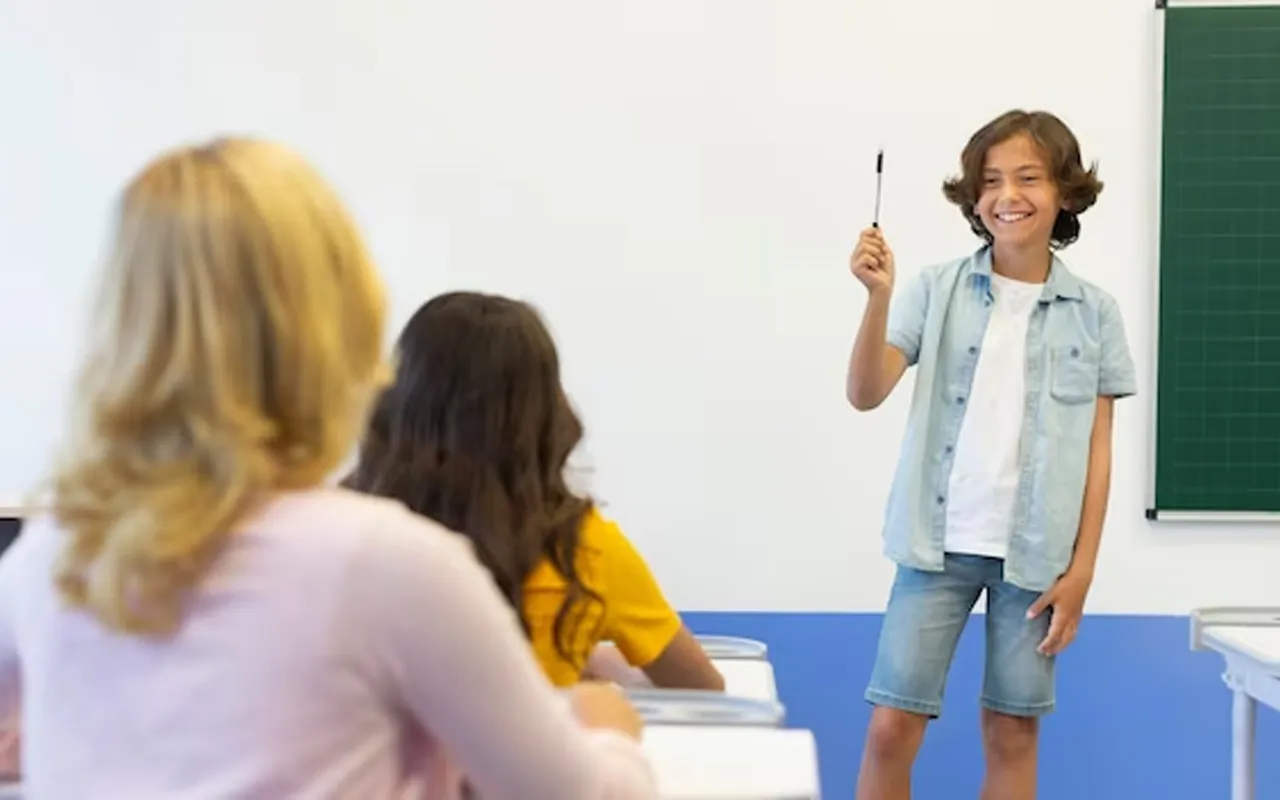
Public speaking is one thing students and so other many people find challenging due to some reasons. Some due to fear of judgment; others due to fear of forgetting information; and many others lack confidence. What exactly is public speaking? And what does it entail? Let's break it down.

Public speaking is the art of engaging or making a presentation to an audience. It takes various communication forms, such as question and answer, speech presentation, or addressing an issue, with the aim of informing, persuading, or inspiring the audience.
The importance of public speaking in school cannot be overemphasized, no matter how many times it is mentioned.
One of the greatest benefits is the acquisition of strong communication skills. Yes, public speaking helps develop strong verbal communication skills, which are essential in academic discussions, group projects, and classroom interactions. People who are able to speak with boldness to a large group of people often make good communicators; they don't find it difficult to express their thoughts and feelings, and that is the kind of person society needs; people who are able to speak up.
In addition to that, some career jobs require public speaking. For example, to be a CEO, manager, or brand representative, you must master the art of public speaking, unless you want to get stuck in your room all day scrolling through the internet. Even for those who work from home, sometimes their job entails having video meetings, either via Zoom to speak to clients or for other important meetings.
Furthermore, speaking in public is a big confidence booster. It requires courage and boldness to talk in front of a lot of people, who are your audience.

However, a lot of students tend to shy away from public speaking due to a number of reasons, or rather excuses.
To some, they are afraid of people's judgment. They are afraid of what people might say or do if they don't perform exceptionally well in the course of their speaking. Hence the tendency to shy away from speaking in public.
Individuals who fear judgment from others often worry about negative evaluations and ratings, concerned that their speech may lead to rejection or exclusion from their peers."
Similarly, fear of forgetting information or not knowing what to say is another reason why people stay away from speaking in public. Some get tongue-tied trying to speak in public, while others simply forget what they want to say.
The fear of forgetting information in public speaking arises from the pressure to recall key details, concerns about the impact on credibility, negative self-evaluation, and the fear of being perceived as unprepared, often prompting speakers to employ memory-enhancing techniques and gradually expose themselves to public speaking situations to build confidence.
Last but not least, lack of confidence: lack of confidence often results from negative self-esteem or doubt about one's ability. This often results in poor public presentation, such as a shaky voice and a trembling body, and may cause individuals to perform poorly.
In order to perform well, you need to prepare well; as the popular saying goes, 'If you fail to prepare, you are preparing to fail. In essence, to perform excellently, you need to prepare well. Without preparation, you won't be able to achieve success.
Here are 10 tips for public speaking preparation:
1.Understand your audience well.
2.Make your points clear.
3.Do thorough research and organize your speech well.
4.Prepare for questions.
5.Manage your time well.
6.Work on your delivery.
7.Practice regularly and practice in front of a mirror.
8.Learn from each speaking experience.
9.Challenge and reframe negative thoughts instead. Visualize success and lastly
10.Practice Positive self-talk

The school is the best foundation for public speaking training. For starters, it allows students to become acquainted with the skill at a young age, giving them a longer runway for skill development. Early exposure helps normalize public speaking as a regular part of academic and social interactions, reducing the fear and apprehension associated with it.
Also, in school, there are numerous opportunities for students to master the art of public speaking, such as in debates, class presentations, general school presentations, and other school activities that allow students the opportunity to talk to an audience.
In school, having lots of different kinds of people makes learning to speak in public even better. It's like a small version of the real world, where we need to talk to all kinds of people. This mix of people helps us get good at talking to different audiences, which is super important.
When we give speeches or presentations, our classmates give us different feedback based on their backgrounds. This helps us learn to be flexible and adapt our talk to include everyone. It's not just about speaking well; it's also about being open-minded and understanding different points of view.
So, in school, we're not just practicing talking; we're learning important life skills like being kind, understanding, and ready for whatever comes our way. This helps us do well not just in school but in the real world too.
Additionally, in school, feeling safe and supported is super important for learning to speak in front of others. Many students get nervous about public speaking, but the school environment helps them face this fear and build confidence.
Teachers and classmates are like a big cheer squad, encouraging students to take risks and express themselves. The familiar school setting makes it less scary to talk in front of others. When teachers give feedback, they focus on how students can get better instead of just pointing out mistakes. This makes public speaking feel like a learning journey, not a test. Classmates who are going through the same things become friends on this journey, creating a supportive community.
By gradually increasing the difficulty of speaking tasks and using technology to practice, students grow more comfortable and confident.
In conclusion, public speaking is all about talking to a group of people to share information, persuade, or inspire. It's an important skill because it helps build strong communication skills, boosts confidence, and is often needed in many careers.
However, many students and people shy away from it due to fear of judgment, forgetting information, or lacking confidence. To overcome this anxiety, preparation is key, and practicing regularly can make a big difference.
Schools play a crucial role in teaching public speaking by providing opportunities for practice and creating a supportive environment. So, while it might be scary at first, learning to speak in public is like a journey in school, it builds skills and confidence and prepares you for the real world.